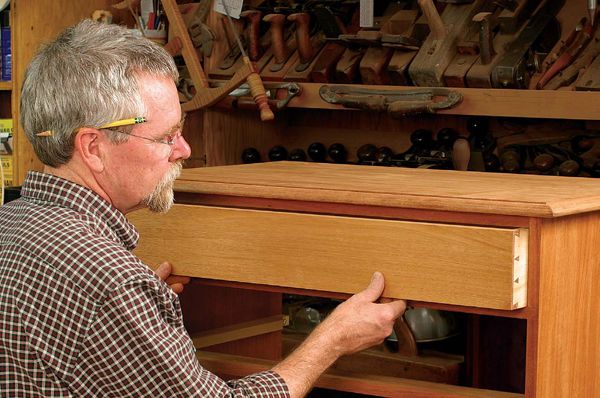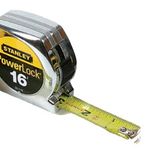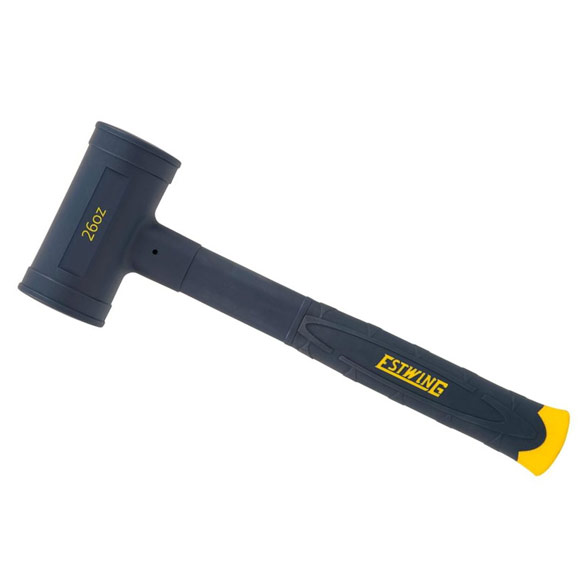Fitting Drawers
You don't need a perfect drawer or case to get perfect results
Synopsis:A well-fitted drawer is one of the things that separates fine furniture from factory-made pieces, but there are times when even the most experienced woodworker will have a drawer that ends up a bit crooked, warped, or twisted. Using techniques explained by furniture marker and teacher Philip C. Lowe, it’s possible to get a perfect-looking fit even when the drawer itself is less than perfect.
A well-fitted inset drawer is one of the hallmarks of fine furniture, separating hand-crafted work from factory made. The hands and eyes go naturally to such a drawer, trying its piston fit and appreciating the fine gap around its edges. Articles and books have addressed the fitting of drawers, but most have focused on the best-case scenario, ignoring a common situation: fitting a slightly imperfect drawer into a slightly imperfect opening.
Ideally, a drawer should slide smoothly into place, with a thin, uniform gap all around and the drawer front aligned perfectly with the front of the case. However, there will be times when a case or a drawer box ends up a bit crooked, warped, or twisted. Sometimes fitting becomes problematic because a drawer divider has warped slightly after the case was assembled. Regardless of the cause, it’s possible to get perfect-looking results even when a drawer or case is less than perfect.
Fit the drawer front and sides before assembly
The process for fitting a traditional inset drawer begins while the drawer still is in pieces. The drawer front should be trimmed to fit the opening in the case—be it square or ever-so-slightly askew. The drawer front will then determine the shape of the drawer box.
Start by checking the drawer opening to see whether there is any bow to the dividers or case. If the dividers are straight, rip the drawer front 1 ⁄16 in. oversize in width. If the dividers are not straight, you may have to leave the drawer front a bit more oversize.
Joint away the saw marks and then fit the drawer front to the height of the opening. If the case or horizontal drawer divider has a bow, start planing this shape from one end of the drawer front to the other. Then plane one end to fit the vertical member it must match (this could be out of square), checking it by sliding just that end into position.
Next, fit the other end of the drawer front. Place most of the front into the opening and use a knife to mark its length at the top and bottom edges.
From Fine Woodworking #173
For the full article, download the PDF below:
Fine Woodworking Recommended Products

Stanley Powerlock 16-ft. tape measure

Estwing Dead-Blow Mallet





















Log in or create an account to post a comment.
Sign up Log in